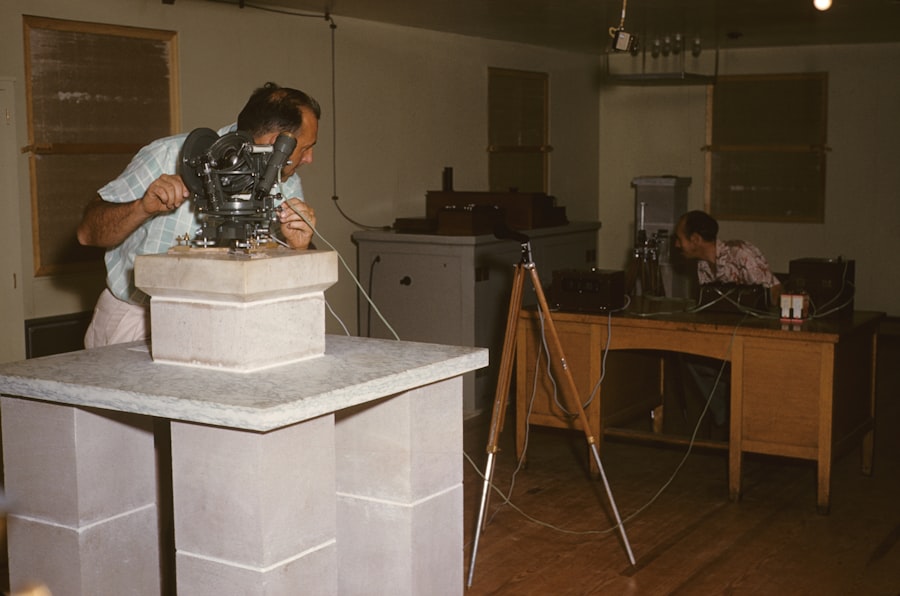An informational interview is a strategic method for gathering insights about a specific industry, company, or job role. Its primary objective is to obtain knowledge and guidance from professionals already established in the field of interest. Unlike a job interview, an informational interview serves as a platform to learn about career paths, company cultures, and industry trends.
This practice allows individuals to expand their professional networks, acquire valuable information, and potentially discover new career opportunities. During an informational interview, participants have the opportunity to ask questions and seek advice from experienced professionals. This interaction provides a deeper understanding of the skills and qualifications required for specific positions, as well as the challenges and benefits associated with working in particular industries.
Furthermore, informational interviews offer valuable insights into company cultures and work environments of potential employers. The overall purpose of an informational interview is to collect data, establish professional connections, and gain clarity on career objectives.
Key Takeaways
- Informational interviews are meant to gather information and insights about a specific industry, company, or role.
- Research and identify potential interviewees by leveraging professional networks, social media, and company websites.
- Craft a professional and polite request for an informational interview, clearly stating the purpose and expressing gratitude for their time.
- Prepare thoughtful and relevant questions that demonstrate genuine interest and curiosity about the interviewee’s experiences and industry knowledge.
- Conduct background research on the interviewee and their industry to show respect and to ask informed questions during the interview.
- Dress and behave professionally during the interview to make a positive impression and show respect for the interviewee’s time.
- Follow up with a thank-you note to show gratitude for the interviewee’s time and insights, and to maintain a professional relationship.
Researching and Identifying Potential Interviewees
Tap into Your Existing Network
Start by reaching out to your existing network, including friends, family, colleagues, and alumni from your school or university. They may be able to connect you with professionals who can provide valuable insights and advice.
Leverage Professional Networking Sites
Additionally, you can utilize professional networking sites like LinkedIn to search for individuals who are working in your target industry or company. When researching potential interviewees, consider their job titles, experience, and expertise to ensure that they are relevant to your career interests. Look for professionals who have a strong understanding of the industry and can provide valuable insights into the job market and career opportunities.
Consider Geographic Location
It is also important to consider the geographic location of potential interviewees, as meeting in person can be more effective than conducting an interview over the phone or via email. By thoroughly researching and identifying potential interviewees, you can increase the likelihood of securing valuable informational interviews.
Crafting a Professional and Polite Request for an Informational Interview

Once you have identified potential interviewees, it is important to craft a professional and polite request for an informational interview. When reaching out to someone for an informational interview, it is essential to be respectful of their time and clearly communicate your intentions. Start by introducing yourself and explaining why you are interested in speaking with them.
Be specific about what you hope to gain from the informational interview and express your appreciation for their time and expertise. When crafting your request, it is important to be clear and concise in your communication. Clearly outline the purpose of the informational interview and suggest a specific date and time for the meeting.
If meeting in person is not possible, offer alternative options such as a phone call or video conference. Additionally, be flexible and accommodating with your proposed meeting times to make it easier for the interviewee to schedule the meeting. By crafting a professional and polite request for an informational interview, you can demonstrate your professionalism and increase the likelihood of securing a meeting with the desired interviewee.
Preparing Thoughtful and Relevant Questions
Before conducting an informational interview, it is crucial to prepare thoughtful and relevant questions that will help you gain valuable insights and advice from the interviewee. Consider what specific information you are seeking and tailor your questions accordingly. Ask about the interviewee’s career path, their experiences in the industry, and any advice they may have for someone looking to enter the field.
Additionally, inquire about industry trends, challenges, and opportunities to gain a better understanding of the current landscape. It is also important to prepare questions that demonstrate your genuine interest in the interviewee’s expertise and experiences. Show that you have done your research by asking insightful questions that go beyond basic information that can be found online.
By preparing thoughtful and relevant questions, you can make the most of the informational interview and gain valuable insights that will help you make informed decisions about your career path.
Conducting Background Research on the Interviewee and Their Industry
In addition to preparing questions, it is essential to conduct background research on the interviewee and their industry before the informational interview. Familiarize yourself with the interviewee’s professional background, including their current role, previous work experience, and any notable achievements or contributions to their industry. This will help you understand their perspective and expertise, allowing you to ask more informed and relevant questions during the interview.
Furthermore, conducting research on the interviewee’s industry will help you gain a better understanding of current trends, challenges, and opportunities within the field. Stay updated on industry news, market trends, and any recent developments that may impact the industry. This will demonstrate your genuine interest in the industry and allow you to engage in meaningful discussions during the informational interview.
By conducting background research on the interviewee and their industry, you can show that you are proactive and well-prepared for the meeting. This will not only impress the interviewee but also help you make the most of the informational interview by asking informed and relevant questions.
Dressing and Behaving Professionally During the Interview

Dress to Impress
Dressing professionally shows that you take the meeting seriously and respect the interviewee’s time and expertise. Choose appropriate attire that reflects the professional standards of the industry or company you are interested in. This may vary depending on the industry, but it is always better to be slightly overdressed than underdressed for an informational interview.
Behave with Respect and Courtesy
In addition to dressing professionally, it is important to behave in a respectful and courteous manner during the interview. Arrive on time or log in promptly for virtual meetings, show active listening by maintaining eye contact and nodding in agreement when appropriate, and express gratitude for the opportunity to speak with the interviewee.
Convey Professionalism through Body Language and Communication
Be mindful of your body language and communication style to convey professionalism and respect throughout the meeting. By dressing and behaving professionally during the informational interview, you can leave a positive impression on the interviewee and demonstrate your readiness for a career in their industry.
Following Up and Showing Gratitude
After conducting an informational interview, it is important to follow up with a thank-you note to express gratitude for the interviewee’s time and insights. Send a personalized email or handwritten note within 24-48 hours of the meeting to thank them for sharing their expertise and advice. Express appreciation for their willingness to speak with you and reiterate any key takeaways or insights that were particularly valuable to you.
In addition to showing gratitude, use this opportunity to reaffirm your interest in staying connected with the interviewee. Request permission to connect on professional networking sites like LinkedIn or ask if they would be open to future conversations or mentorship opportunities. This will help you maintain a professional relationship with the interviewee and potentially expand your network within their industry.
By following up and showing gratitude after an informational interview, you can leave a positive impression on the interviewee and continue building a professional relationship that may benefit your career in the future. In conclusion, conducting informational interviews can be a valuable tool for gaining insights into a specific industry or career path. By understanding the purpose of an informational interview, researching potential interviewees, crafting professional requests, preparing thoughtful questions, conducting background research, dressing professionally, behaving respectfully during interviews, and following up with gratitude afterward, you can make the most of these opportunities to expand your professional network and gain valuable insights into your desired field.
If you’re looking to enhance your skills and knowledge for career development, you may want to check out this article on the benefits of continuous learning for skill development. Continuous learning can help you stay competitive in the job market and make you a more attractive candidate for potential employers. It’s a great way to prepare for an informational interview and demonstrate your commitment to personal and professional growth.
FAQs
What is an informational interview?
An informational interview is a meeting in which a job seeker asks for advice and information rather than employment. It is an opportunity to learn about a particular job, company, industry, or career path from someone with experience in that field.
Why should I do an informational interview?
Informational interviews can provide valuable insights into a specific career or industry, help expand your professional network, and potentially lead to job opportunities in the future.
How do I prepare for an informational interview?
To prepare for an informational interview, research the person you will be meeting with, prepare a list of questions, dress professionally, and bring a copy of your resume. It’s also important to be respectful of the person’s time and come prepared to actively listen and engage in the conversation.
What should I ask during an informational interview?
During an informational interview, you can ask about the person’s career path, their current role, the company they work for, industry trends, and any advice they have for someone looking to enter the field.
How do I follow up after an informational interview?
After an informational interview, it’s important to send a thank-you email expressing your gratitude for the person’s time and insights. You can also use this opportunity to reiterate your interest in the field and ask to stay in touch for future opportunities.



